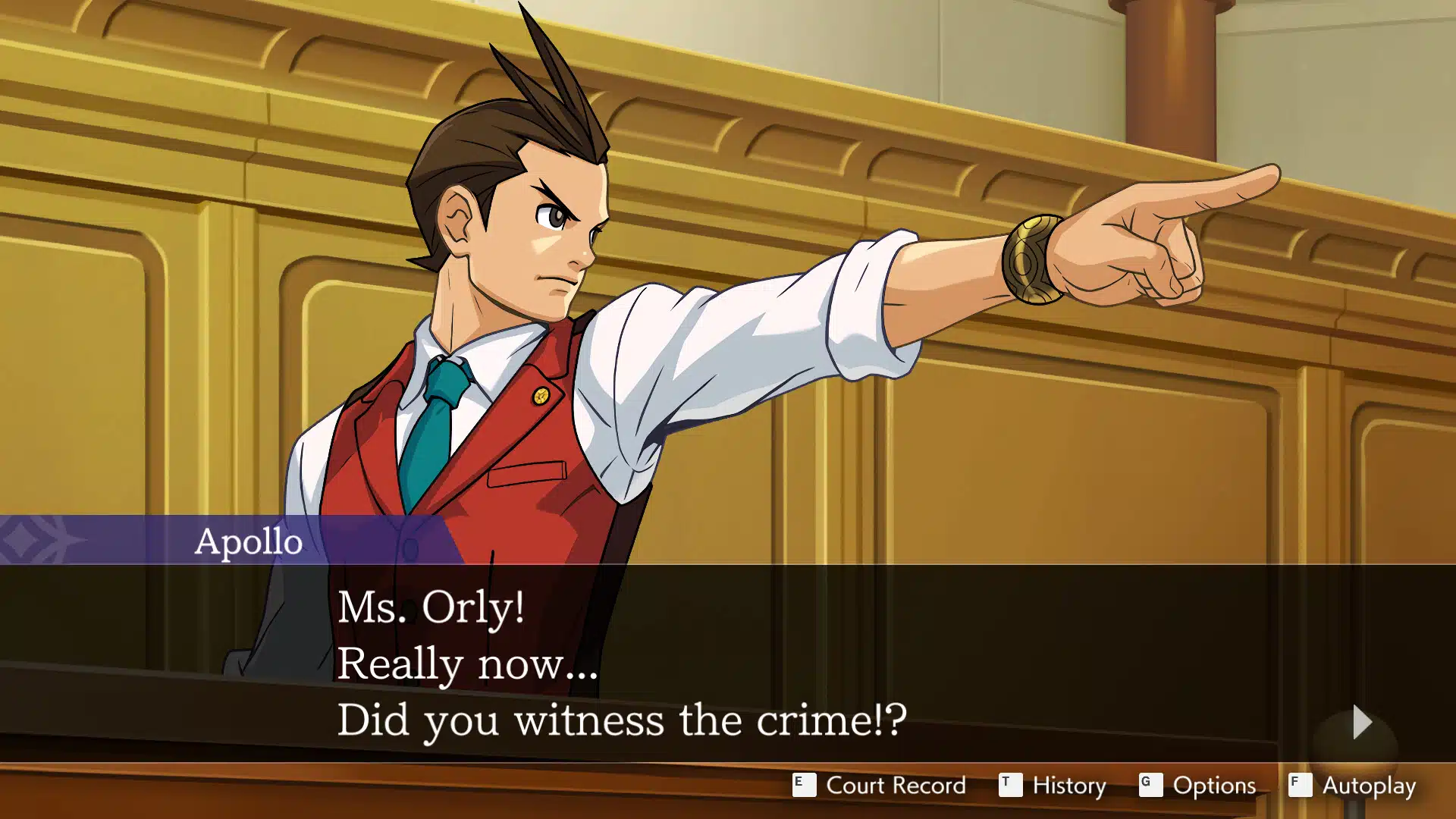While fans are still waiting for a brand new game in the series to come to fruition, Capcom has been bringing the older entries in the series to modern platforms piece by piece, including the original trilogy and the two previously Japan-exclusive Great Ace Attorney games. Logically, the next games in the series to get a re-release would be the second trilogy of games that are now being released as Apollo Justice: Ace Attorney Trilogy.
Take That!
The mainline Ace Attorney series has had six entries to date, each with its own set of cases to defend. While they have been split into trilogies for re-releases like this, there is not an overarching story between each trilogy other than each subsequent entry continuing the stories of the characters.
Apollo Justice: Ace Attorney trilogy specifically includes Apollo Justice: Ace Attorney, Phoenix Wright: Ace Attorney – Dual Destinies, and Phoenix Wright: Ace Attorney – Spirit of Justice. Like the other Ace Attorney compilations, each of the games are available to be played from the very start via the game’s main menu. From here, you can select any of the three games to play. This is a nice inclusion for those that perhaps already played Apollo Justice: Ace Attorney, but missed the other two games and wanted to jump right to them instead.
While somebody can just jump right into these games, it is recommended that you play through the original trilogy first so that you can get an idea of what these games are like and who characters like Phoenix Wright are. It also can serve as a way to see if you will like this game as well, since they are for the most part the same style of games with different stories and some new mechanics added in each. The biggest thing here that is ever present in the series is a lot of dialogue. If you are not in for a visual novel game with lots of text, this is certainly not going to be a game or series in general for you.
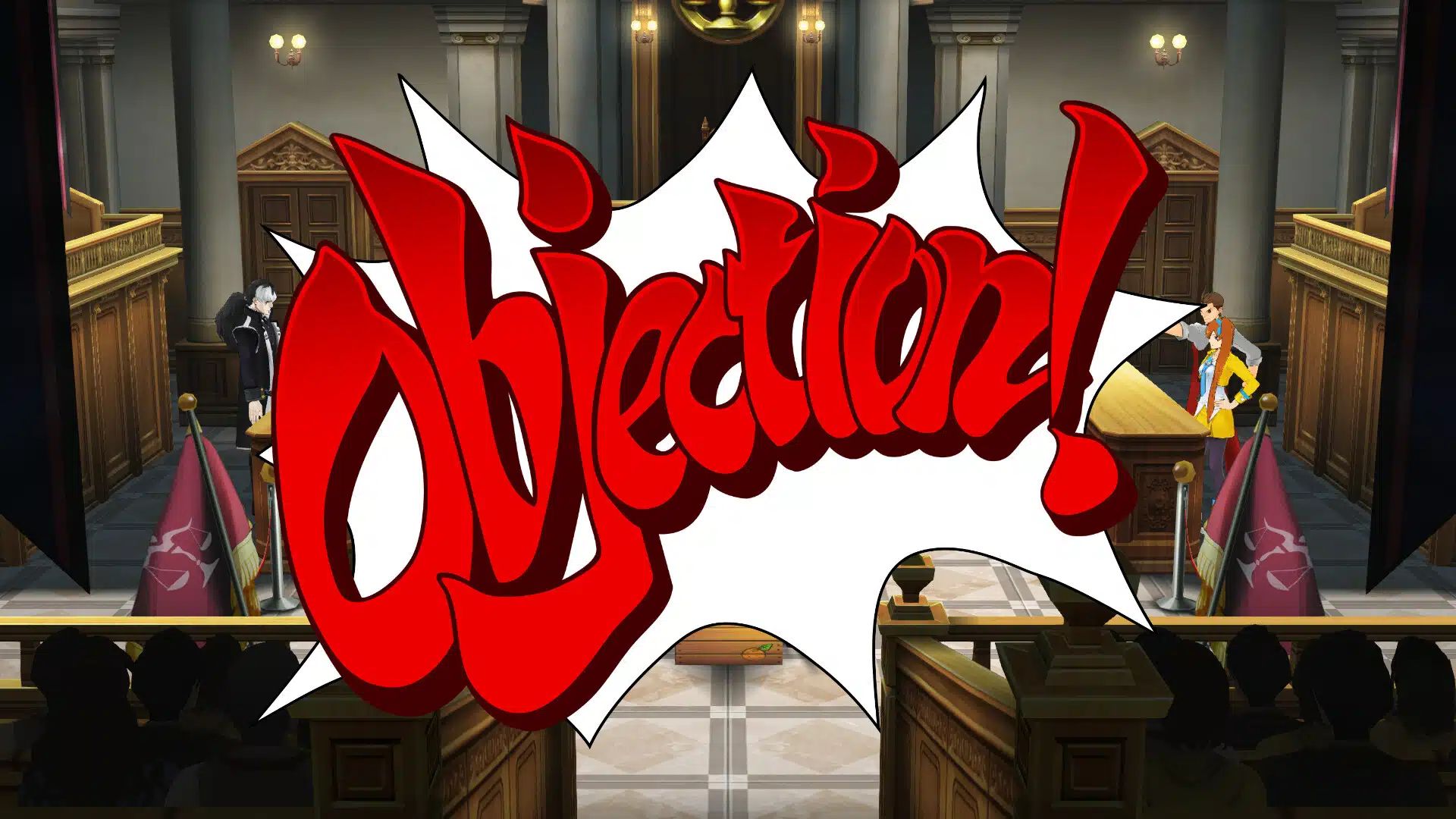
A nice feature that has been carried over from The Great Ace Attorney Chronicles is the ability to select Episodes and even specific Chapters from the very start. One of the complaints about the original Ace Attorney trilogy collection was the lack of a chapter selection, but that was remedied in The Great Ace Attorney Chronicles and is also back again here. Regardless of if you have played any of say Phoenix Wright: Ace Attorney Spirit of Justice, you can jump right into Episode 4 or even the Special Episode that is included from the very start. This obviously isn’t recommended at all if you haven’t played the games before, but say you were playing on one platform and then wanted to jump to another, this is great to have as an option.
One might have assumed prior that Apollo Justice: Ace Attorney was a spin-off title since the rest have Phoenix Wright in the title, but it still serves as a mainline entry. This game picks up over seven years after the events of the third game, Phoenix Wright: Ace Attorney – Trials and Tribulations. Since that time, Phoenix Wright has been disbarred and this leads to Apollo Justice being the lead for the game. However, Phoenix Wright is still ever present in the story and plays a huge part from the very start.
The first trial in Apollo Justice: Ace Attorney has Apollo defending Phoenix Wright himself after he is accused of murder, which leads to the duo working together moving forward. Part of the story revolves around Wright’s disbarment which naturally is very important for future games. The cases in this game were quite interesting and had a lot of nice twists involving characters that you may not expect either.
For the most part, Apollo Justice: Ace Attorney plays like previous Ace Attorney games where you have to gather information through investigations, cross-examine witnesses, find contradictions in their statements, and present evidence to prove your deductions correct. This entry does introduce a new wrinkle though with the Perceive mechanic, as Apollo has a special gift for noticing if someone has a tell or tick when lying during a statement. The Crime Scene Recreation mechanic was also new at the time and allows you to find contradictions in the crime scene itself, which is still very useful in the courtroom. One new feature here that was already in the two follow-up games was a History option to review previous dialogue in the game, which is a great addition.
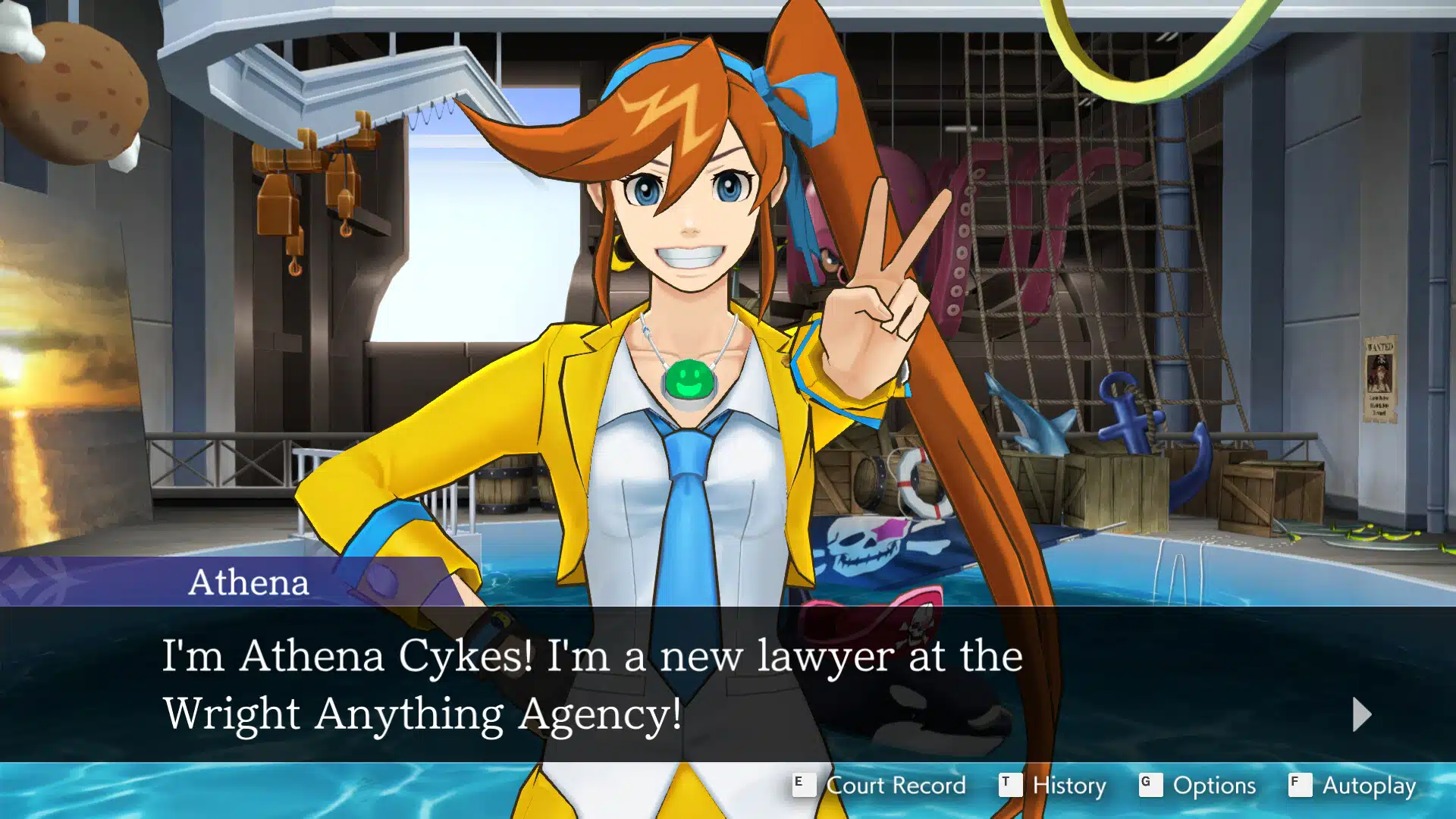
Where the Ace Attorney took a step into the next generation at the time was with Phoenix Wright: Ace Attorney – Dual Destinies, as it featured a jump to the Nintendo 3DS at the time. The leap between Apollo Justice and Dual Destinies can still be seen now from the very start as it features a fully animated opening cutscene with voice acting.
Dual Destinies starts off with a bang, literally, as a bomb is ticking down as people are running out of the courtroom before it explodes and you find yourself playing as a new character named Athena Cykes who has to defend a girl who is accused of the very bombing. Apollo at this point is injured from the blast and Athena has to take over as defender for this case before Phoenix ends up getting involved as well. Interestingly, this case doesn’t take place until much later in the game chronologically, so it may get a bit confusing for those playing through the first time on when things are taking place if you aren’t keeping note of the dates. The story overall felt a bit darker than other entries to this point, especially with Apollo’s story as he begins to push away both Phoenix and Athena.
This game features three different defenders that you will play as, including Phoenix, Apollo, and Athena, each of which has their own special abilities to use in the courtroom. Apollo returns his Perceive ability, while Phoenix has a Psyche-Lock ability where he can tell that someone is lying and Athena has a Mood-Matrix that helps you to see the emotions of the person you are cross-examining. These all come in very handy in cases and feel quite natural for the series. Another major addition at the time was the ability to explore spaces in 3D when doing investigations, which still is an important part of the game as well.
The last game of the trilogy is Phoenix Wright; Ace Attorney – Spirit of Justice, which features a split storyline that has Phoenix visiting former assistant Maya Fey in the fictional Kingdom of Khura’in while Apollo and Athena stay at home handling cases there. Phoenix’s story involves Khura’in’s belief that defense attorneys are useless at this point and instead rely on Divination Seances for their verdicts. On top of this, they have a law that says anyone who defends someone will befall the same fate if found guilty and pretty much every case for the last so many years has been a guilty verdict. We know Phoenix better than that though and he gets involved and has to find his way around a corrupt system to survive. While initially staying at home, Apollo eventually gets involved in the events of Khura’in as well and we learn some very interesting things about Apollo that were not known prior.
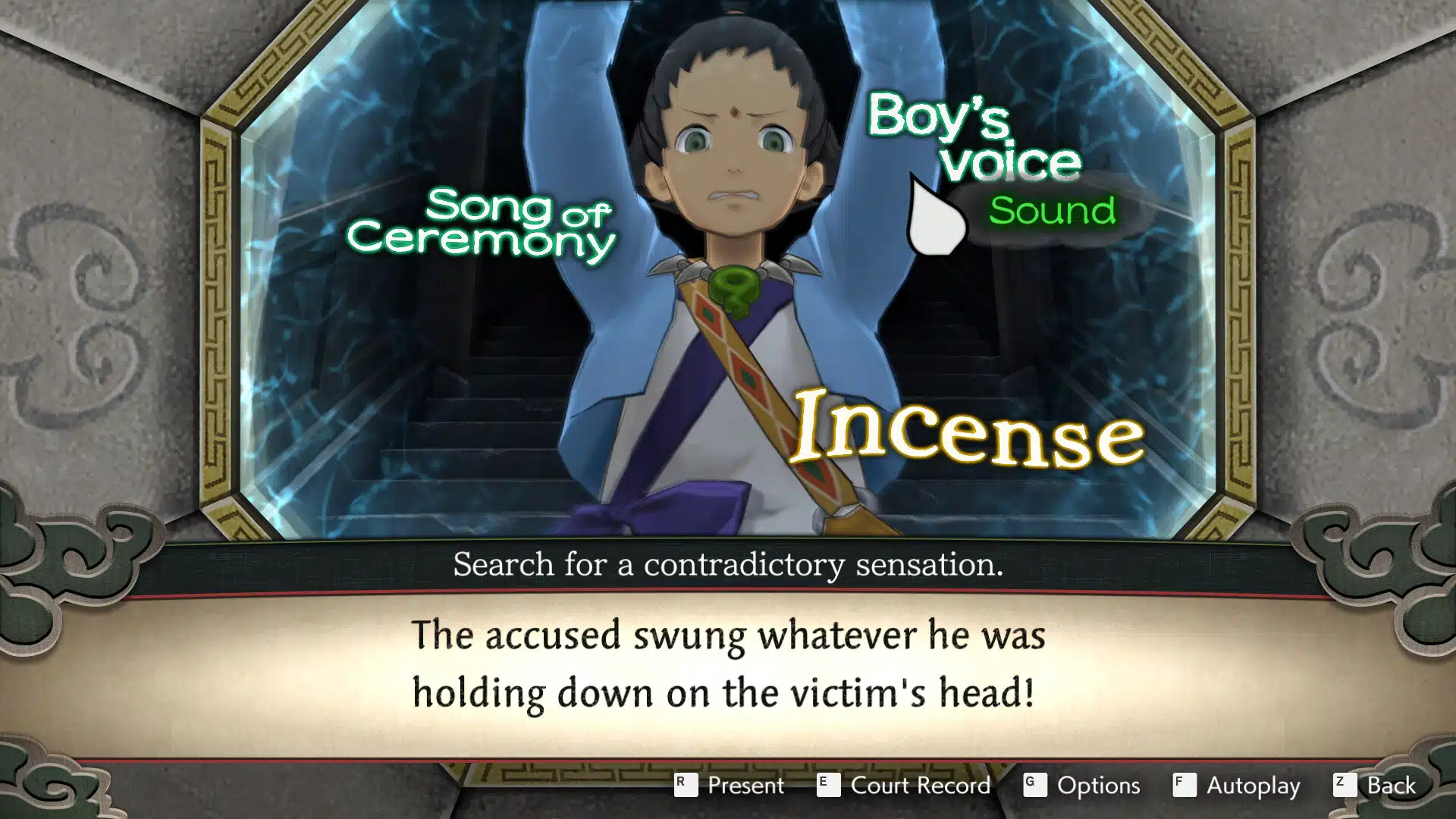
I really thought the way this game tried to turn the traditional trial system on its head by changing things up was unique at the time and I still had a lot of fun with it today. The aforementioned Divination Seances were introduced that showed the final moments of a victim before their death, which added another layer to the existing gameplay fans of the series have come to know and love. From my initial playthroughs, I always found this game to be my favorite of the three and that is still the case today after replaying the trilogy. They are all separate entries that are only a trilogy because of how they are now re-released, but they still go well together as continuous stories of these characters over several years following the original trilogy of games.
Apollo Justice: Ace Attorney on the DS still maintained most of the 2D visual style of the original trilogy of games upon its release, but the move to the 3DS with the subsequent two entries led to a transition to more 3D models alongside the 2D ones at the time that felt a little weird in Dual Destinies and even Spirit of Justice later. However, that is no longer a problem as they all look a lot better here as the entire trilogy has been upgraded visually to fit with modern systems. All three games look crisp throughout and maintain the colorful animations that the series has always been known for.
One thing that I was disappointed in the original trilogy re-releases as well was the lack of adding voice acting to the game, which is also the case here. As mentioned previously, the cutscenes for the latter two games in this trilogy added voice acting, but that is only for those scenes still. This would have been a lot of work though with how text-heavy these games are, so it is very understandable why they did not on top of the developers previously stating that this was purposeful so that players could read the text with their own voices in their head for what they thought characters should sound like. Even so, I think it would be a nice addition to the series for future entries.
Besides the three games being included in their entirety, Apollo Justice: Ace Attorney Trilogy also includes an in-game museum for you to explore. The first part of this section is the Orchestra Hall, which allows you to play various music tracks. Not only are the soundtracks for all three games included, but there are also orchestral arrangements for multiple tracks as well as a couple of new trilogy exclusive variations of songs to select.
The Art Library is full of extra content for you to view, including illustrations, character designs, and even the in-game movies if you would like to rewatch them. Something kind of weird is that you cannot pause or close out of the movies for Apollo Justice: Ace Attorney specifically once you begin each for some reason, even though the game does warn you of this before clicking. This is more of a nitpick, but is just strange to not have included as an option for only the first game of the trilogy when the other two have this feature.
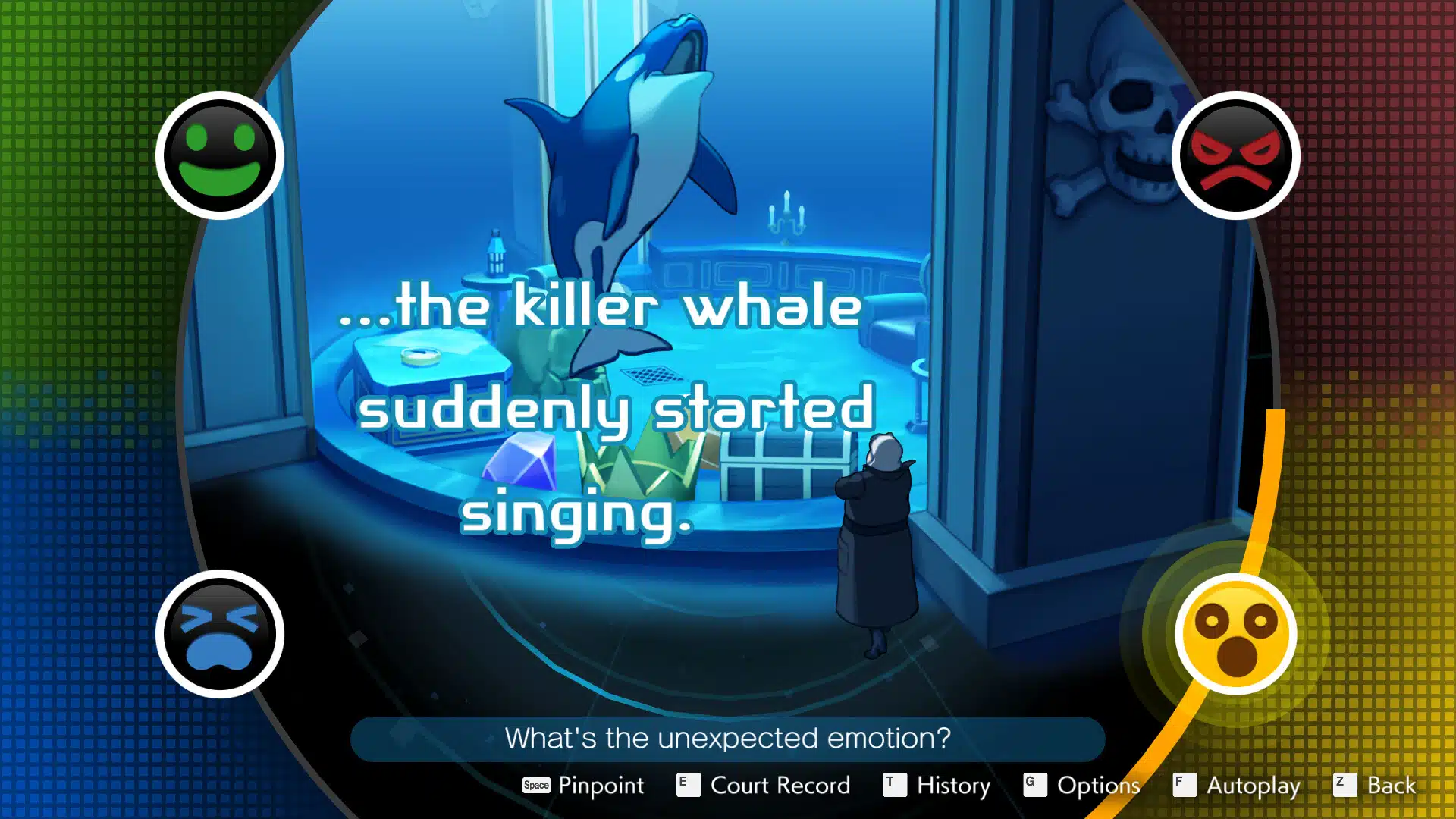
An Animation Studio is also available in the Museum, though it’s very basic by letting you select characters from the three games, select their stance, and then select their sound effect. There’s not much to do here and most players will just skip this entirely. The only other part of the Museum is the Accolades section which includes in-game achievements for players to earn in the game, although the majority of them are just completing each Episode in the game.
There is no objection needed here, as Apollo Justice: Ace Attorney Trilogy is just what we wanted to see with the re-release of these three classic games in the series. You may not have the convenience of the second screen from the originals, but pretty much everything else is better here than in the past. The visual upgrades for all three are impressive and are very much in line with other modern games and releases, while the gameplay for the trio still holds up very well today. While the Ace Attorney series is definitely not for everyone as a visual novel game, Apollo Justice: Ace Attorney Trilogy is yet another winning re-release for this franchise that will have fans itching even more for a new entry in the franchise to be announced.
Score: 8/10
Pros:
- Tons of hours to enjoy across the three games
- Compelling characters and cases
- Each subsequent game has new mechanics to introduce
- Remastered visuals are a big improvement
Cons:
- No added voice acting
- No extra content besides the Museum
- Not for everyone
Apollo Justice: Ace Attorney Trilogy review code was provided by the publisher. You can read MP1st’s review and scoring policy right here.
